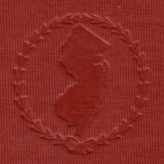 |  |  |
|
| ||
 |  |  |
 |  |  |
|
| ||
 |  |  |
|
|
By Frank R. Stockton
Originally published in 1896
But Penelope had entirely different ideas upon the
subject. She thoroughly believed in the old Indian, and
was sure that he would not have come and told her
that story unless it had been true. If her husband
chose to stay and risk his life, she could not help it;
but she would not subject herself and her children to
the terrible danger which
threatened them. She
had begged her husband
to go with her; but as he
had refused, and had returned to his work, she
and her children would
escape alone.
Consequently she set
out with the little ones,
and with all haste possible she reached the
place where the canoe
was moored among some
tall reeds, and, getting in with the children, she paddled
away to New Amsterdam, hoping she might reach
there in time to send assistance to Middletown before
the Indians should attack it.
When Farmer Stout found that his wife had really
gone off, and had taken the children with her, he began
to consider the matter seriously, and concluded that
perhaps there might be something in the news which
the old Indian had brought. He consequently called
together a number of the men of the village, and they
held a consultation, in which it was determined that it
would be a wise thing to prepare themselves against
the threatened attack; and, arming themselves with all
the guns and pistols they could get, they met together
in one of the houses, which was well adapted for that
purpose, and prepared to watch all night.
They did not watch in vain, for about midnight they
heard from the woods that dreadful war whoop which
the white settlers now well understood. They knew
it meant the same thing as the roar of the lion, who,
after silently creeping towards his intended victim,
suddenly makes the rocks echo with the sound of his
terrible voice, and then gives his fatal spring.
But although these men might have been stricken
with terror, had they heard such a war cry at a time
when they were not expecting it, and from Indians to
whom they were strangers, they were not so terrified
at the coming of these red men with whom, perhaps
only the day before, they had been trading buttons
for venison and beans. They could not believe that
these apparently mild and easy-going fellows could
really be the terrible savages they tried to make themselves appear.
So Richard Stout and his companions went boldly
out, guns in hand, to meet the oncoming savages, and,
calling a parley, they declared that they had no in-
tention of resting quietly, and allowing themselves and
families to be slaughtered and their houses burned. If
the Indians, who had so long been their good neighbors,
were now determined to become bloody enemies,
they would find that they would have to do a good
deal of hard fighting before they could destroy the
village of Middletown; and, if they persisted in carrying
on the bloody job they had undertaken, a good
many of them would be killed before that job was
finished.
Now, it had been very seldom that Indians who had
started out to massacre whites had met with people
who acted like this; and these red men in war paint
thought it wise to consider what had been said to
them. A few of them may have had guns, but the
majority were armed only with bows and tomahawks;
and these white men had guns and pistols, with plenty
of powder and ball. It would clearly be unsafe to fight
them.
So, after discussing the matter among themselves
and afterwards talking it over with the whites, the
Indians made up their minds, that, instead of endeavoring
to destroy the inhabitants of Middletown, they
would shake hands with them and make a treaty of
peace. They then retired ; and on the following day
a general conference was held, in which the whites
agreed to buy the lands on which they had built their
town, and an alliance was made for mutual protection
and assistance. This compact was faithfully observed
as long as there were any Indians in the neighborhood,
and Middletown grew and flourished.
Among the citizens of the place there were none
who grew and flourished in a greater degree than the
Stout family. Although Penelope bore upon her body
the scars of her wounds until the day of her death,
it is stated, upon good authority, that she lived to be
one hundred and ten years old; so that it is plain that
her constitution was not injured by the sufferings and
hardships of the beginning of her life in New Jersey.
Not only did the Stouts flourish in Middletown, but
some of them went a little southward, and helped to
found the town of Hopewell; and here they increased
to such a degree that one of the early historians relates
that the Baptist Church there was founded by the
Stouts, and that for forty-one years the religious meetings were held in the houses of different members of
the Stout family, while, at the time he wrote, half of
the congregation of the church were still Stouts, and
that, all in all, there had been at least two hundred
members of that name. So the Baptist Church in
Hopewell, as well as all the churches in Middletown,
owed a great deal to the good Indian who carried poor
Penelope to his village, and cured her of her wounds.
Authorities:
This Web version, edited by GET NJ, COPYRIGHT 2003
"History of New Jersey." S. Smith.
"History of New Jersey." J. C. Raum.
"Historical Collections." Barber and Howe.
"Story of an Old Farm." A. C. Mellick.
| Finis |
| Main Menu |

|

|
UrbanTimes.com |